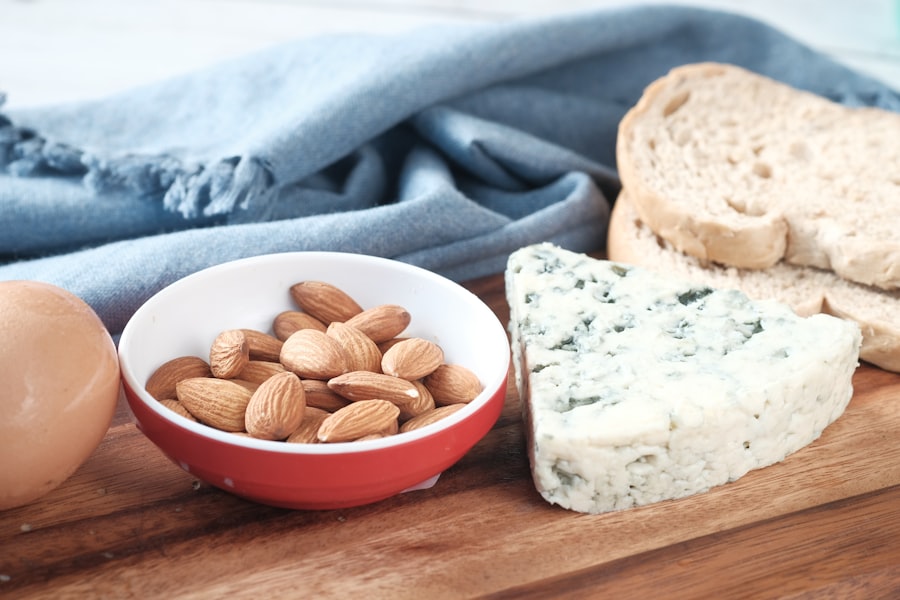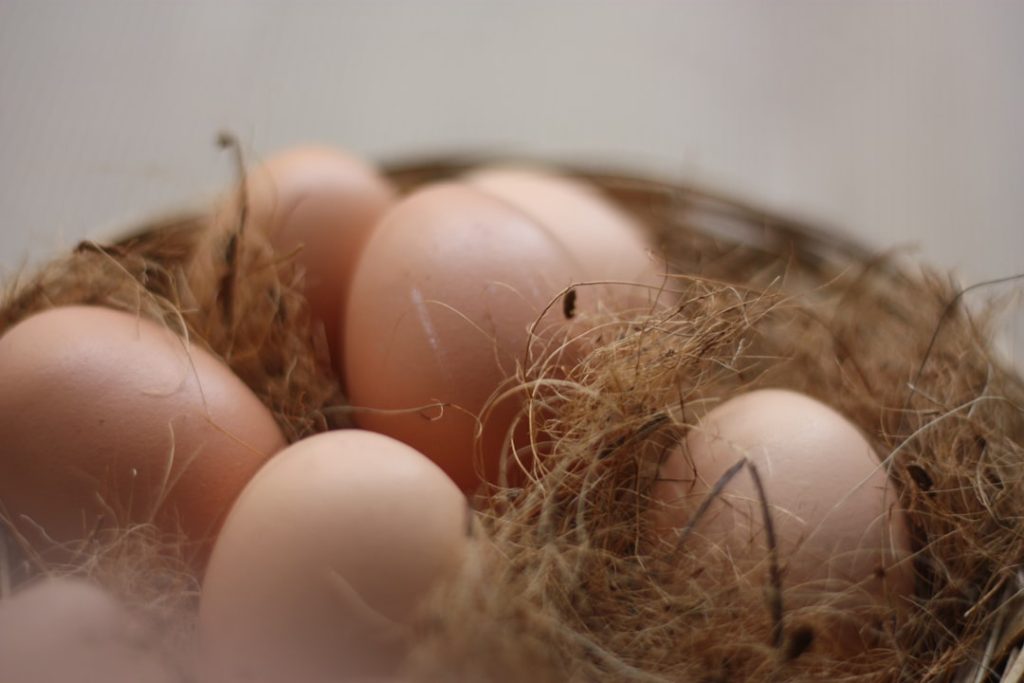Soft eggs, also known as shell-less eggs or rubber eggs, are a common issue in egg production. These eggs lack a hard outer shell and are often just a membrane surrounding the yolk and white. There are several potential causes for soft eggs, including nutritional deficiencies, stress, age, and genetics.
Nutritional deficiencies in chickens can lead to soft egg production. Calcium and vitamin D are essential for the formation of strong eggshells. If a chicken’s diet lacks these nutrients, it can result in soft eggs.
Additionally, inadequate protein levels can also impact eggshell quality. Stress is another factor that can contribute to soft egg production in chickens. Stress can be caused by various factors such as overcrowding, sudden changes in environment, or predator attacks.
When chickens are stressed, it can disrupt their reproductive system and lead to the production of soft eggs. Age can also play a role in the occurrence of soft eggs. As hens age, their ability to absorb and utilize calcium efficiently may decrease, potentially resulting in weaker eggshells.
Younger hens just beginning to lay eggs may also produce soft-shelled eggs as their reproductive systems mature. Genetics can influence a chicken’s predisposition to laying soft eggs. Some breeds may be more prone to this issue than others, and individual hens within a flock may have genetic factors that affect their eggshell quality.
To address soft egg production, poultry farmers often focus on improving nutrition, reducing stress factors, and ensuring proper flock management. This may include providing calcium supplements, adjusting feed formulations, improving coop conditions, and implementing stress-reduction strategies.
Table of Contents
Key Takeaways
- Soft eggs can be caused by a variety of factors including nutritional deficiencies, stress, age, and genetics
- Nutritional deficiencies in chickens, such as calcium and vitamin D3, can lead to soft eggshells
- Stress can have a negative impact on egg production and lead to the laying of soft eggs
- As chickens age, the quality of their eggs may decrease, leading to softer shells
- Genetics play a role in determining the quality of eggshells, with some breeds being more prone to soft eggs
- Management practices such as providing a balanced diet and a stress-free environment can help improve eggshell strength
- If soft egg laying persists, seeking veterinary advice is important to address any underlying health issues
Nutritional deficiencies in chickens
The Importance of Calcium
Calcium is particularly important for eggshell formation. Chickens require a sufficient amount of calcium to produce strong and healthy eggshells. If their diet is deficient in calcium, they may not be able to form proper eggshells, leading to soft eggs.
Vitamin D: The Key to Calcium Absorption
Vitamin D also plays a vital role in eggshell quality. Chickens need vitamin D to properly absorb and utilize calcium for eggshell formation. Without enough vitamin D in their diet, chickens may struggle to produce strong eggshells, leading to issues such as soft eggs.
Protein: The Foundation of Healthy Egg Production
In addition to calcium and vitamin D, protein is also essential for overall egg production and quality. Chickens require a balanced diet that includes adequate levels of protein to support healthy egg production. A lack of protein in their diet can lead to issues with eggshell quality, potentially resulting in soft eggs.
Stress and its impact on egg production

Stress can have a significant impact on egg production in chickens. When chickens experience stress, it can disrupt their reproductive system and lead to issues such as soft eggs or a decrease in egg production. There are several factors that can cause stress in chickens, including overcrowding, sudden changes in environment, predator attacks, or even extreme weather conditions.
Overcrowding in chicken coops or runs can lead to stress among the flock. When chickens are crowded together in limited space, it can lead to aggression, competition for resources, and an overall increase in stress levels. This can negatively impact their reproductive health and result in issues with egg production, including the production of soft eggs.
Sudden changes in environment can also cause stress in chickens. This can include changes in temperature, lighting, or even the introduction of new flock members. Chickens are sensitive to changes in their surroundings, and sudden disruptions can lead to increased stress levels, impacting their ability to produce healthy eggs.
Predator attacks are another source of stress for chickens. The presence of predators or the fear of potential attacks can cause significant stress among the flock, leading to disruptions in their reproductive system and potentially resulting in issues with egg production, including the production of soft eggs.
Age and its effect on egg quality
The age of a chicken can have a significant effect on the quality of the eggs they produce. As chickens age, their egg production typically decreases, and the quality of the eggs may also decline. Older hens may produce eggs with thinner shells or other issues that can impact their overall quality.
Younger hens generally produce eggs with stronger shells and better overall quality compared to older hens. As hens age, their ability to produce strong eggshells may diminish, leading to issues such as soft eggs or thin-shelled eggs. It’s important for poultry farmers to be aware of the age of their hens and understand how it can impact the quality of the eggs they produce.
In addition to changes in eggshell quality, older hens may also experience a decrease in overall egg production. This decline in productivity is a natural part of the aging process for chickens. While older hens may still lay eggs, the frequency and quality of their eggs may not be as consistent as when they were younger.
The role of genetics in eggshell quality
Genetics play a significant role in determining the quality of eggshells produced by chickens. Different breeds of chickens may have varying genetic predispositions for producing strong or weak eggshells. Some breeds are known for consistently producing eggs with strong shells, while others may be more prone to issues such as soft eggs or thin-shelled eggs.
Selective breeding can also impact the genetic traits related to eggshell quality within a specific flock. Poultry breeders may prioritize certain traits when selecting breeding stock, including the ability to produce eggs with strong shells. Over time, this selective breeding can influence the genetic makeup of a flock and potentially impact the overall quality of the eggs they produce.
It’s important for poultry farmers to be aware of the genetic factors that can influence eggshell quality within their flock. By understanding the genetic predispositions of their chickens, farmers can make informed decisions about breeding stock and management practices that may help improve eggshell quality over time.
Management practices for improving eggshell strength

Nutrition and Hydration
Providing a balanced diet that includes essential nutrients such as calcium, vitamin D, and protein is crucial for supporting healthy eggshell formation. In addition to a balanced diet, ensuring that chickens have access to clean water at all times is essential for overall health and egg production. Dehydration can impact eggshell quality, so it’s important to regularly check water sources and ensure they are clean and readily available to the flock.
Environmental Conditions
Proper housing and environmental conditions are also important for supporting healthy egg production and eggshell quality. Providing adequate space, ventilation, and nesting areas can help reduce stress among the flock and support optimal reproductive health.
Monitoring and Intervention
Regular monitoring of the flock’s health and behavior can also help identify potential issues that may impact eggshell quality. By observing the flock closely, farmers can identify signs of stress or nutritional deficiencies early on and take proactive measures to address these issues before they impact egg production.
Seeking veterinary advice for persistent soft egg laying
If a flock is experiencing persistent issues with soft egg laying, it’s important for poultry farmers to seek veterinary advice. A veterinarian with experience in poultry health can help diagnose potential underlying causes for soft egg production and develop a targeted treatment plan to address the issue. Veterinarians can conduct thorough health assessments of the flock and may recommend diagnostic tests to identify any underlying health issues that could be contributing to soft egg laying.
Once potential causes have been identified, veterinarians can work with farmers to develop a comprehensive management plan that addresses nutritional deficiencies, stress factors, or other issues impacting eggshell quality. In some cases, veterinarians may recommend dietary supplements or changes to the flock’s feeding regimen to address specific nutritional deficiencies that could be contributing to soft egg laying. They may also provide guidance on environmental management practices that can help reduce stress among the flock and support optimal reproductive health.
Overall, seeking veterinary advice for persistent soft egg laying is crucial for identifying and addressing potential health issues within the flock that could be impacting eggshell quality. By working closely with a veterinarian, poultry farmers can develop effective strategies for improving eggshell strength and supporting healthy egg production within their flock.
If you’re having trouble with your chickens laying soft eggs, you may want to consider investing in a high-quality chicken coop like the Producers Pride Sentinel Chicken Coop. This coop provides a comfortable and secure environment for your chickens, which can help improve the quality of their eggs. Check out this article for more information on how the right coop can make a difference in your chicken’s egg production.
FAQs
What are soft eggs?
Soft eggs are eggs that have a thin or soft shell, making them more fragile and prone to breaking. This can be caused by various factors such as age, diet, stress, or health issues in chickens.
Why do chickens lay soft eggs?
Chickens may lay soft eggs due to a variety of reasons, including inadequate nutrition, lack of calcium, stress, age, or health issues. Soft eggs can also be a result of a hen’s reproductive system not functioning properly.
How can I prevent chickens from laying soft eggs?
To prevent chickens from laying soft eggs, it is important to provide them with a balanced diet that includes sufficient calcium. Ensuring that the chickens have access to clean water, a stress-free environment, and proper nesting boxes can also help prevent the issue.
Are soft eggs safe to eat?
Soft eggs are safe to eat as long as they are cooked thoroughly. However, it is important to inspect the egg for any signs of spoilage or abnormal odor before consuming it.
When should I be concerned about chickens laying soft eggs?
If a chicken consistently lays soft eggs or if there are other signs of health issues such as lethargy, loss of appetite, or abnormal behavior, it is important to consult a veterinarian to rule out any underlying health problems.
Meet Walter, the feathered-friend fanatic of Florida! Nestled in the sunshine state, Walter struts through life with his feathered companions, clucking his way to happiness. With a coop that’s fancier than a five-star hotel, he’s the Don Juan of the chicken world. When he’s not teaching his hens to do the cha-cha, you’ll find him in a heated debate with his prized rooster, Sir Clucks-a-Lot. Walter’s poultry passion is no yolk; he’s the sunny-side-up guy you never knew you needed in your flock of friends!







